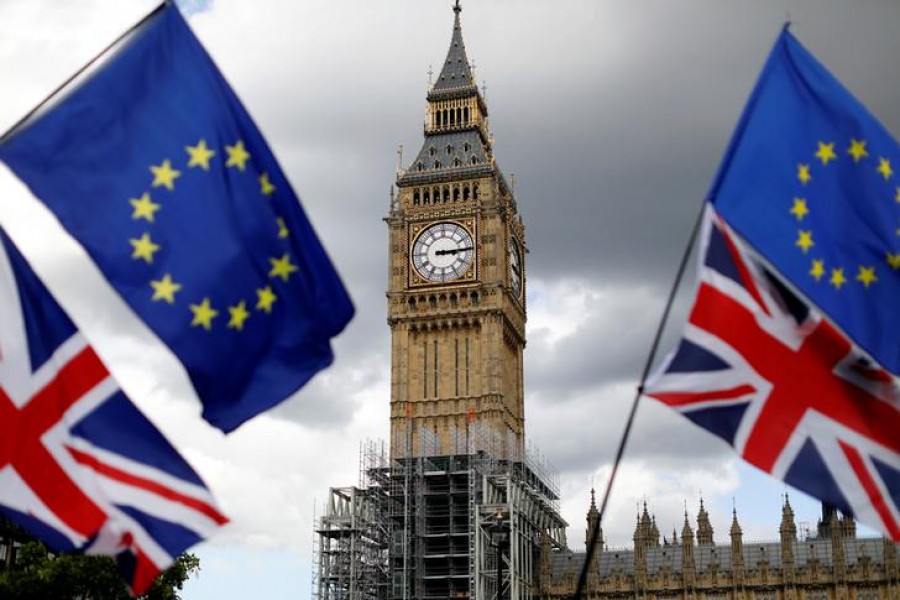European Union governments are set to adopt a negotiating mandate for their executive European Commission on Tuesday to clinch a deal with Britain this year on future ties after it left the bloc in January.
The EU mandate aims to offer Britain, which sells 45 per cent of exports and buys 53 per cent of imports from the 27-nation bloc, no tariffs and no quotas in the future.
In exchange, the EU wants London not to undercut European companies with lower - and therefore less costly - environmental, labour, tax and state aid standards.
But Britain does not want to make such a commitment, stressing its “primary objective in the negotiations is ... economic and political independence” and that it could accept tariffs and quotas similar to a deal the bloc has with Canada.
“From our side we are ready to offer a substantial, ambitious, balanced and wide-ranging partnership,” Croatian state secretary for European affairs Andreja Metelko-Zgombic told reporters before a ministerial meeting in Brussels.
“Our negotiators will have good framework for future negotiations, it’s up to the parties when they sit at the table how they’re willing to go,” she added.
Britain will publish its own negotiating stance on Thursday and talks are to start next week, Reuters reported.
Both sides want to have a deal ready by the end of the year, when Britain’s transition period ends. Without a trade deal, business contacts would be based on World Trade Organization rules, which assume tariffs, quotas and cumbersome paperwork.
The agreed text of the EU negotiating mandate says any new trade treaty between the EU and Britain “should prevent distortions of trade and unfair competitive advantages so as to ensure a sustainable and long-lasting relationship”.
“The envisaged agreement should uphold common high standards, and corresponding high standards over time with (European) Union standards as reference point,” says the document, seen by Reuters.


